
Fora’s Take
For first-time visitors, a classic tour of India often includes the Golden Triangle: Delhi, Agra and the Rajasthan cities. While this route may seem straightforward, insightful navigation is crucial. In India, adopting a minimalist approach often works best, especially for Western travelers who might find the cultural shift intense.
There's a common debate about whether 10 days are sufficient to explore the historical richness of India, particularly as the birthplace of Hinduism, Buddhism and Jainism. While this period isn't quite enough to delve deeply, it is possible to capture a significant essence of India. To start planning, check out a FORA itinerary for six days in Rajasthan.
The Fora Difference
Book with our team of advisors to unlock exclusive perks and discover hidden gems.
Killer perks
Free upgrades, spa credits and more—we got you
Personalized recs
Customized travel planning for your style
Insider knowledge
Expert advice from people who’ve actually been there
Where to stay
Unlock perks by contacting our team of advisors to book your trip.
Day 1: Arrival and exploration in Jaipur
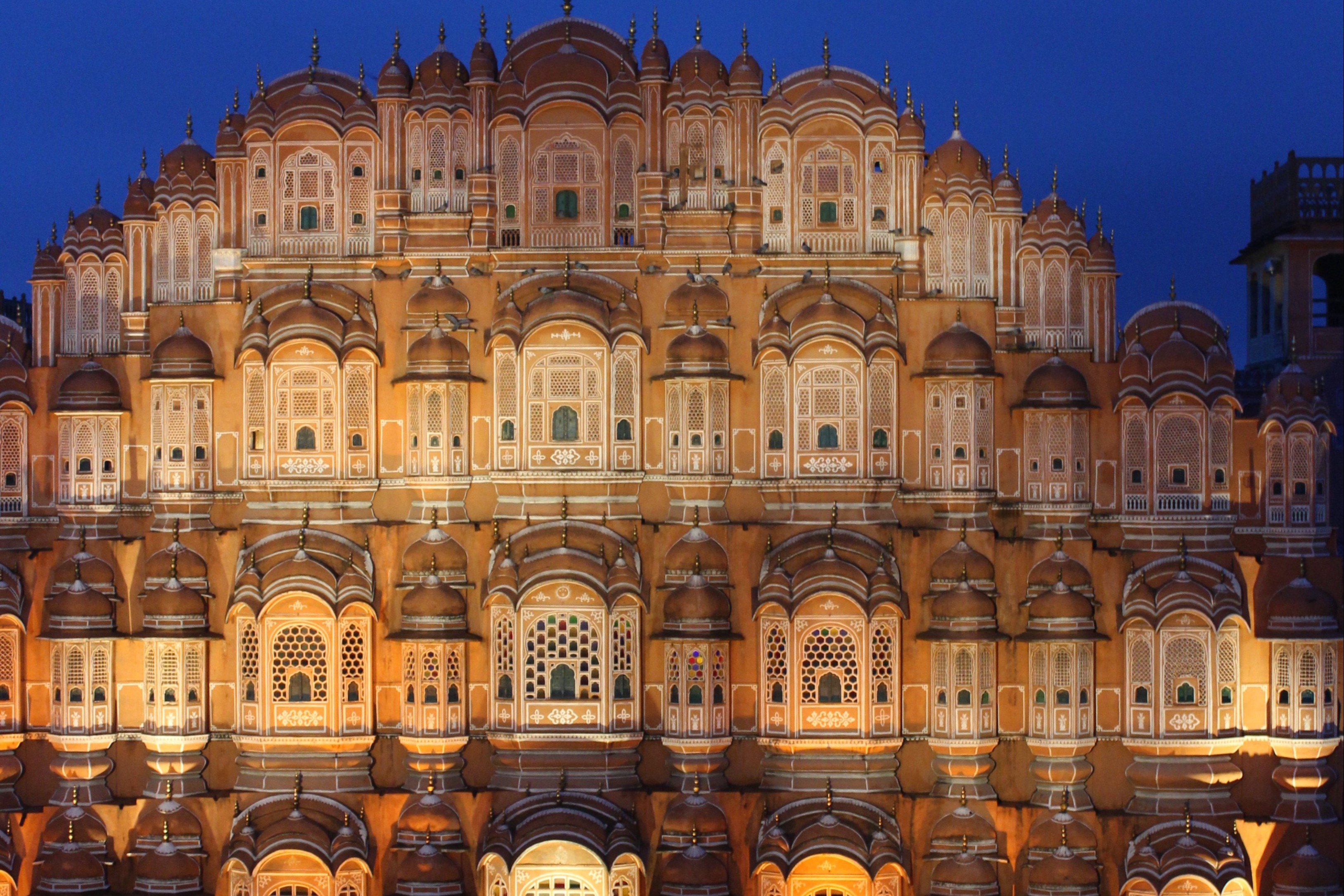
Starting in Delhi is recommended. This city, with its layered historical and cultural fabric, comprises at least seven cities and multiple collapsed civilizations. Despite its chaotic beginnings and current hustle-and-bustle, Delhi remains a pleasant city, partly due to the green spaces and urban planning left by the British Raj.
Morning: Arrive in Jaipur. Transfer to your hotel for check-in. Start your day with a traditional breakfast at a local eatery, sampling dishes like Pyaaz Kachori and Masala Chai.
Late morning: Begin exploring with a visit to the iconic Hawa Mahal, known for its red and pink sandstone facade and intricate windows. Take a guided tour to learn about its history and architecture.
Afternoon: Head to the City Palace, a royal residence showcasing a blend of Rajasthani and Mughal architecture. Enjoy a traditional Rajasthani Thali for lunch at a nearby restaurant.
Late afternoon: Explore the Jantar Mantar, an astronomical observatory that is a UNESCO World Heritage site. Learn about ancient instruments and their use in astronomy.
Evening: Stroll through the local markets like Johari Bazaar, known for jewelry, textiles, and traditional crafts. Sample local street food delicacies.
Dinner: Have dinner at a traditional restaurant, trying local dishes like Laal Maas or Dal Baati Churma, accompanied by folk music and dance.
Day 2: Exploring Jaipur’s architectural marvels
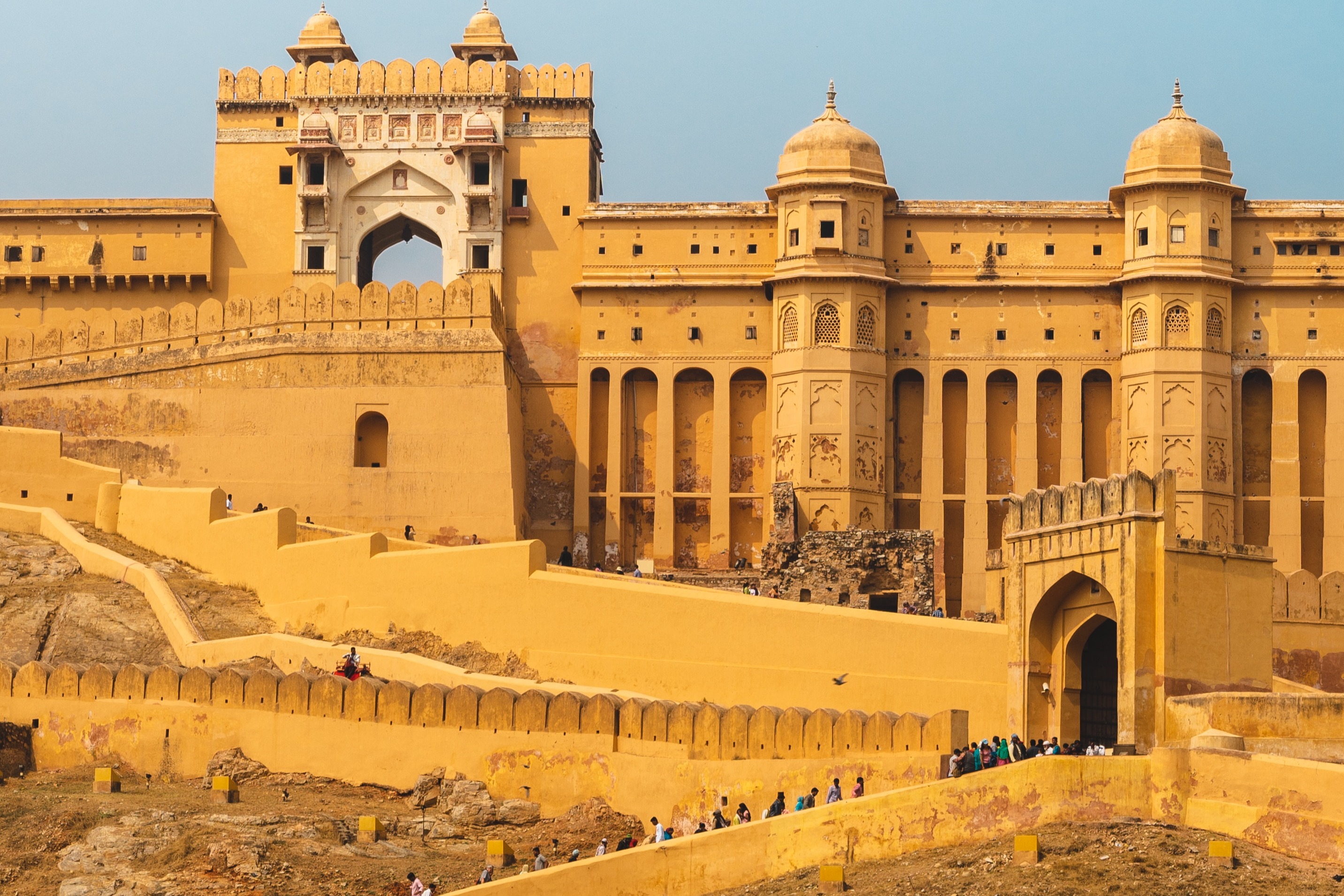
Early morning: Start early with a visit to the Amber Fort, an imposing fort overlooking Maota Lake. Opt for an elephant ride to the entrance for a unique experience.
Late morning: Explore the fort's palaces, halls and gardens, including the famous Sheesh Mahal (Mirror Palace). Enjoy a light snack at a café within the fort.
Afternoon: Visit the nearby Panna Meena ka Kund, an ancient stepwell, for photography. Lunch at a restaurant offering views of the Amber Fort.
Late afternoon: Explore Jaigarh Fort, known for its world’s largest cannon on wheels, and Nahargarh Fort, offering panoramic views of Jaipur.
Evening: Visit the Birla Mandir, a beautiful white marble temple. Enjoy the serene ambiance and intricate carvings.
Dinner: Dine at a rooftop restaurant overlooking the city, enjoying Rajasthani cuisine.
Day 3: Jaipur to Jodhpur: The blue city
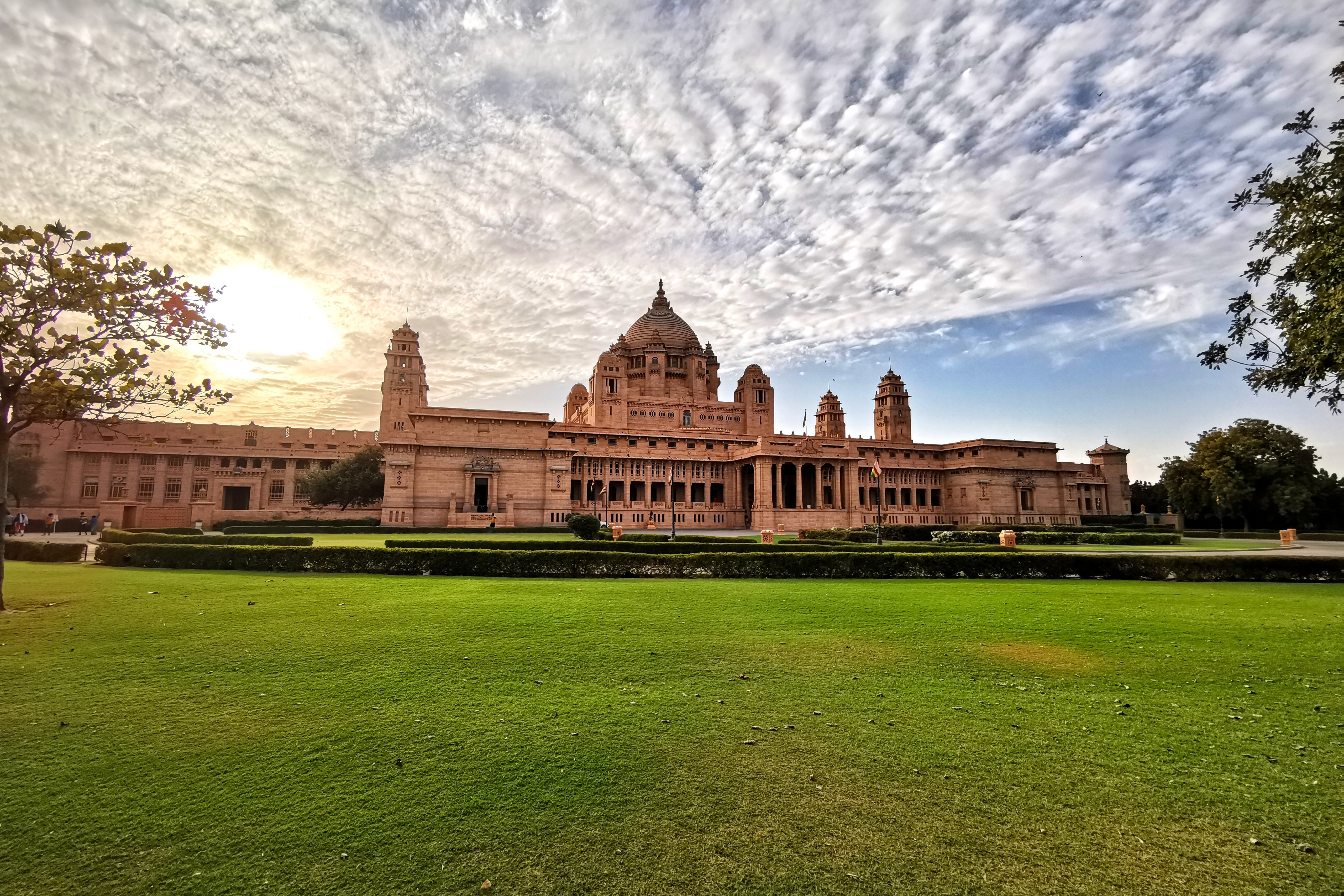
Early morning: Begin your day with an early breakfast at your hotel in Jaipur. Check out and prepare for the road trip to Jodhpur. The journey covers approximately 340 kilometers and takes around six hours. It's advisable to start early to avoid the midday heat.
Mid-morning: On the way to Jodhpur, you can make a brief stop at the small town of Ajmer and visit the famous Ajmer Sharif Dargah, a renowned Sufi shrine. This visit offers a peaceful interlude and a glimpse into the spiritual heritage of Rajasthan.
Lunch: Stop at a highway dhaba (local eatery) for a traditional Rajasthani lunch. Dhabas are known for their authentic flavors, offering dishes like Dal Bati Churma and Gatte ki Sabzi. Enjoy the rustic ambience and the delicious, freshly cooked meals.
Afternoon: Continue your journey to Jodhpur. Upon arriving in Jodhpur, head to your hotel for check-in. Take some time to relax and freshen up after the long drive.
Late afternoon: Begin your exploration of Jodhpur by visiting the Umaid Bhawan Palace, one of the world’s largest private residences. Part of the palace is a hotel, while another section houses a museum showcasing the royal family's history and exquisite artifacts. The palace's architecture, a blend of eastern and western styles, is a marvel in itself.
Early evening: Proceed to a walking tour of the old city. Jodhpur's blue houses, traditionally painted to reflect the Brahmin caste, now give the city its moniker, the Blue City. Wander through narrow lanes, capturing the essence of local life, and make your way to the Clock Tower, a prominent landmark.
Dinner: Conclude your day with dinner at a local restaurant renowned for its Rajasthani cuisine. Opt for specialties like Laal Maas (spicy lamb curry) or Ker Sangri (a traditional desert vegetable dish). Enjoy the flavors of Jodhpur as you dine in a setting that often includes live folk music and performances.
Night: Return to your hotel for a restful night. The evening in Jodhpur is usually pleasant, offering a perfect end to a day filled with travel and exploration.
Day 4: Jodhpur to Udaipur via Ranakpur
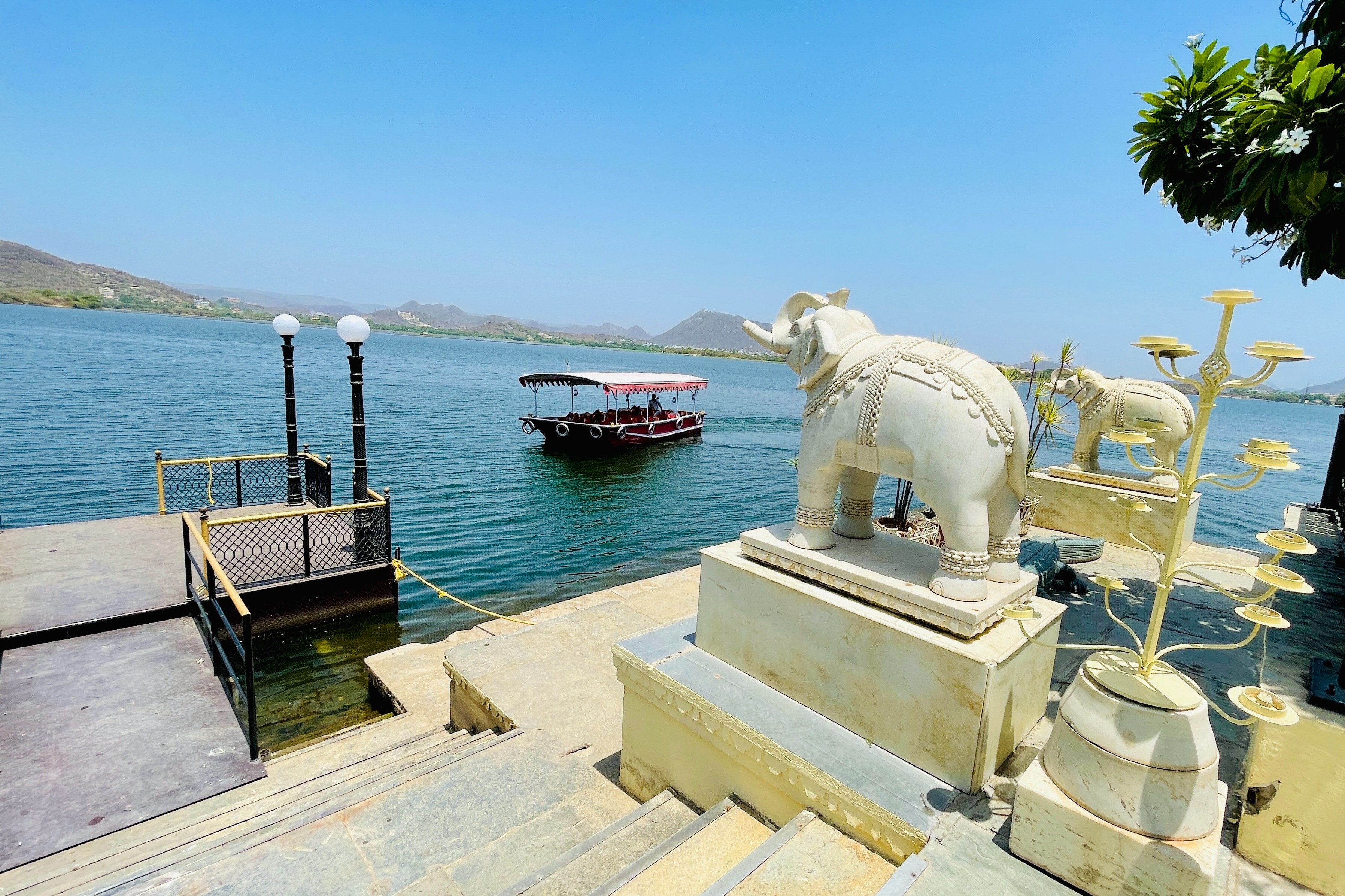
Early morning: Begin your day with an early breakfast in Jodhpur before checking out of your hotel. Prepare for the scenic drive to Udaipur, which takes approximately five hours.
Mid-morning: On the way to Udaipur, stop at the Ranakpur Jain Temple, nestled in the serene Aravalli Range. This temple, renowned for its intricate marble carvings and 1444 uniquely carved pillars, offers a tranquil and spiritual experience.
Lunch: Have lunch at one of the local restaurants near Ranakpur, experiencing traditional Rajasthani cuisine in a rustic setting.
Afternoon: Continue your journey to Udaipur. Upon arrival, check into your hotel and rest for a bit after the long drive.
Late afternoon: Begin exploring Udaipur with a visit to the City Palace, one of the largest palace complexes in India. The palace offers stunning views of Lake Pichola and the surrounding city.
Evening: Enjoy a serene boat ride on Lake Pichola, witnessing the beautiful sunset and the illuminated cityscape. See the picturesque Jag Mandir Island and the Taj Lake Palace Hotel up close.
Dinner: Dine at a lakeside restaurant, sampling Udaipur's local cuisine while enjoying the peaceful ambiance of the lake.
Day 5: Exploring Udaipur
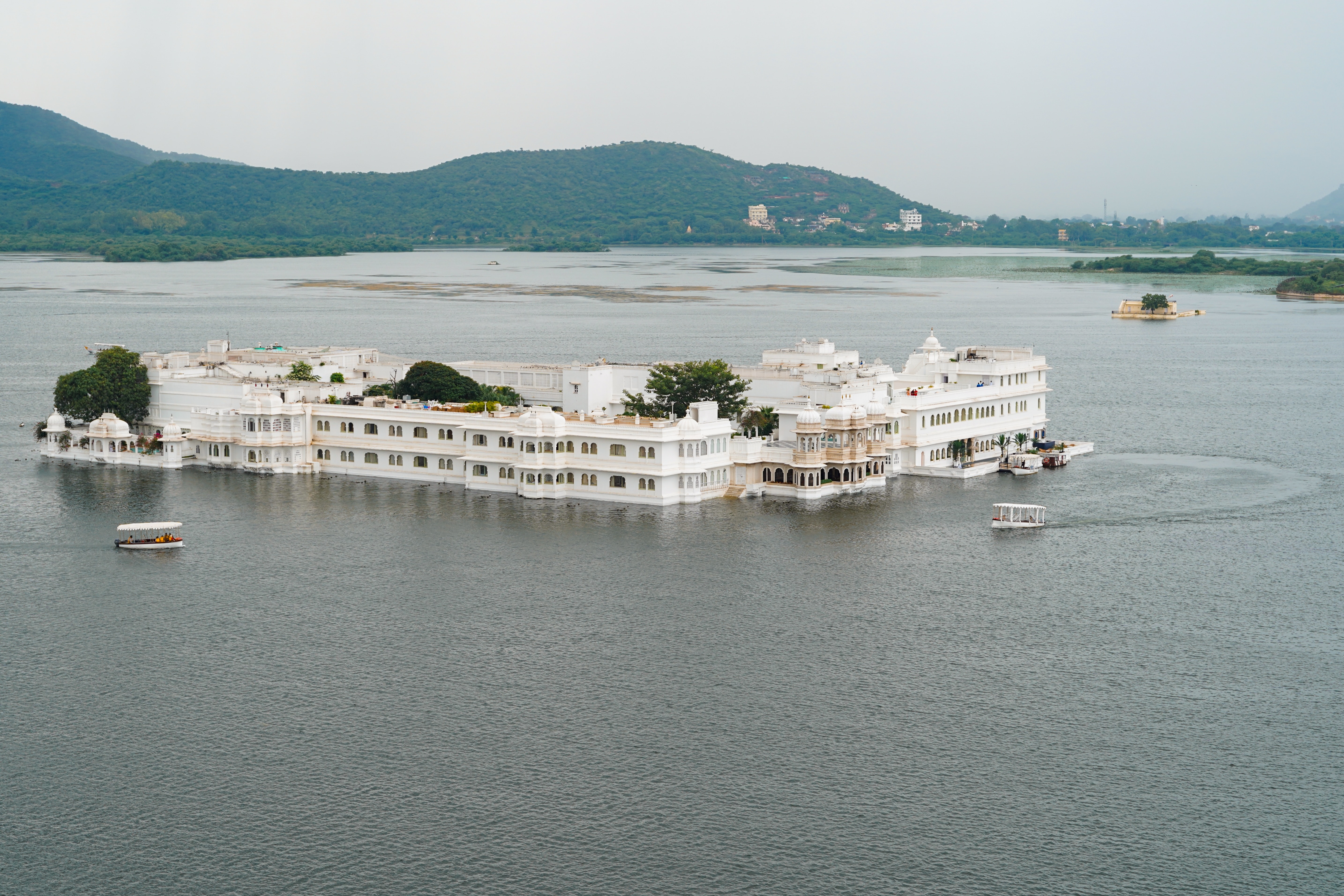
Morning: After breakfast, visit the Saheliyon-ki-Bari (Garden of the Maidens), known for its lush gardens, fountains, and marble art.
Late morning: Explore the Jagdish Temple, a large Hindu temple in the middle of Udaipur. Admire its intricate carvings and serene atmosphere.
Afternoon: Enjoy lunch at a local restaurant, trying dishes like Dabeli or Poha. Post-lunch, visit the Bagore Ki Haveli, a historic haveli that now serves as a museum showcasing Rajasthani culture.
Late afternoon: Spend some time exploring the local markets, known for miniature paintings, silver jewelry and handmade crafts. This is a perfect opportunity for souvenir shopping.
Evening: Relax at a café by the lake, savoring some coffee or tea while enjoying the view.
Dinner: Enjoy your final dinner in Udaipur at a restaurant offering traditional live music and dance performances, creating a memorable end to your day.
Day 6: Udaipur to Pushkar/Ajmer
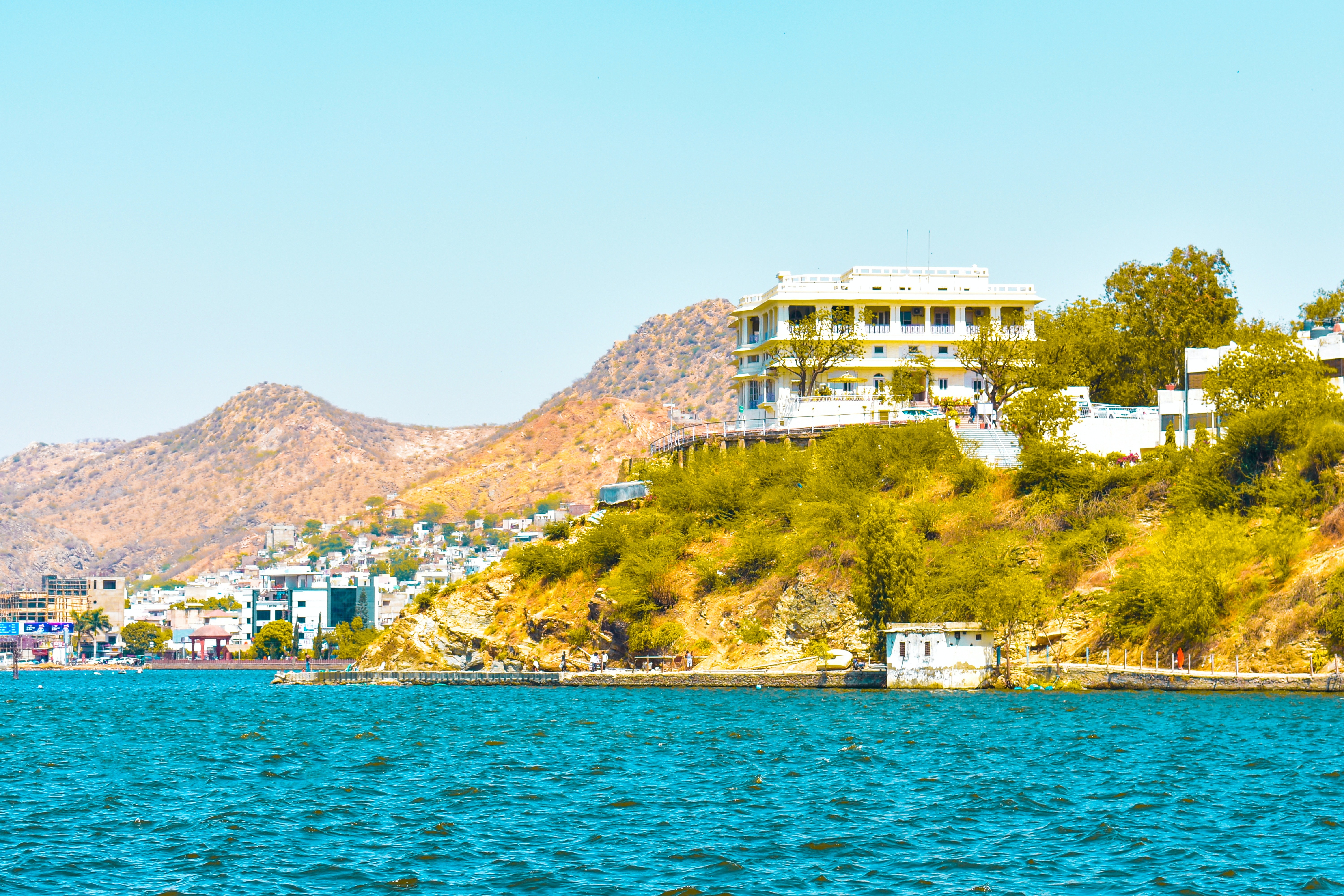
Early morning: Start your day with an early breakfast at your hotel in Udaipur. Check out and prepare for your journey to Pushkar, with a brief stop in Ajmer. The drive to Pushkar is approximately four hours long, so an early start is beneficial.
Mid-morning: Arrive in Ajmer, a city known for its spiritual significance. Visit the Ajmer Sharif Dargah, one of the most sacred Muslim shrines in India. The shrine, dedicated to the Sufi Saint Moinuddin Chishti, is an embodiment of religious harmony and attracts pilgrims from all faiths.
Late morning: After exploring Ajmer Sharif, enjoy a brief walk around Ana Sagar Lake, a man-made lake offering serene views and a peaceful environment.
Lunch: Have lunch at a local restaurant in Ajmer. Traditional dishes such as Biryani or Kebabs are recommended for an authentic culinary experience.
Afternoon: Continue your journey to Pushkar. Upon arrival, check into your hotel and freshen up. Pushkar, a town bordering the Thar Desert, is known for its sacred lake and unique spiritual ambiance.
Late afternoon: Explore the holy Pushkar Lake, surrounded by 52 bathing ghats and hundreds of temples. A ritual dip in this lake is believed to cleanse sins and cure skin diseases. Visit the only Brahma Temple in the world, dedicated to Lord Brahma, the Hindu god of creation.
Evening: Stroll through the local bazaars of Pushkar. The markets here are famous for their unique items like rose products, spiritual goods and Rajasthani textiles.
Dinner: Enjoy a calm evening by the lake with dinner at a rooftop café, offering a view of the town and the lake. The town's relaxed vibe provides a perfect setting to reflect on your journey.
Night: Return to your hotel for a restful night, marking the end of your six-day Rajasthan journey.
Additional tips for your journey:
Rajasthan can be hot, so light, breathable clothing is recommended. Carry a hat and sunscreen for daytime excursions.
Consider hiring a private car with a driver for the entirety of your trip for convenience and flexibility.
Always carry bottled water to avoid dehydration.
Dress modestly, especially while visiting temples and religious sites.
Always ask for permission before photographing locals or entering private properties.
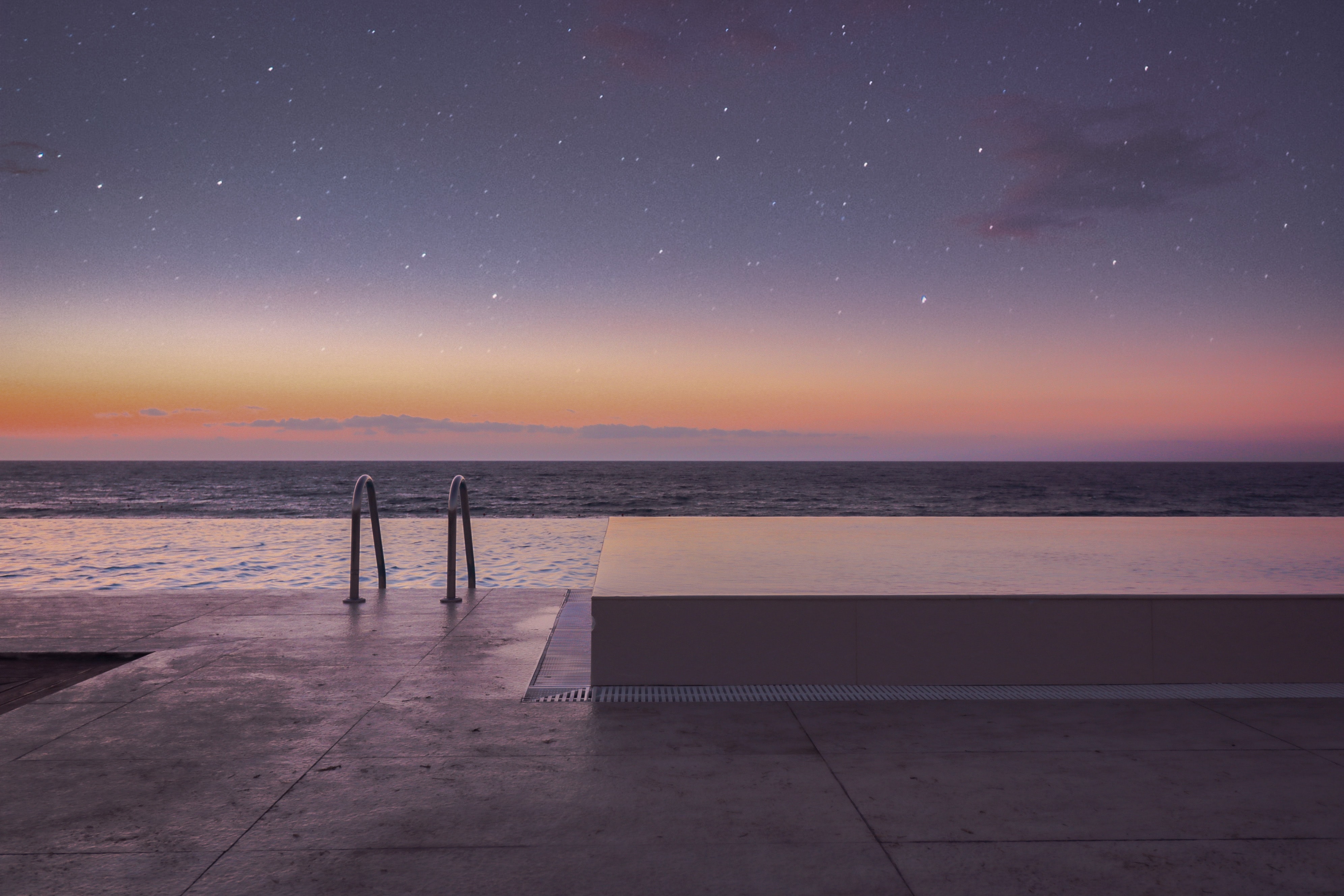
The Modern Travel Agency
Fora

Reach out to a Fora Advisor.
Did you like this guide? Reach out to customize and book your own experience with a Fora Advisor. Or, to chat about travel in general.
You can normally expect a response from Fora within a business day or so. You’ll also be subscribed to our travel newsletter (you can unsubscribe at any time).
For more inspiration and insider recommendations, visit our India page.